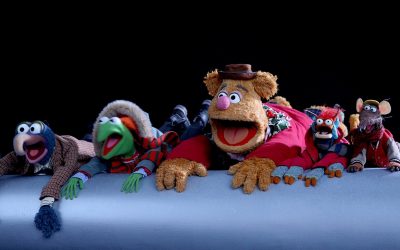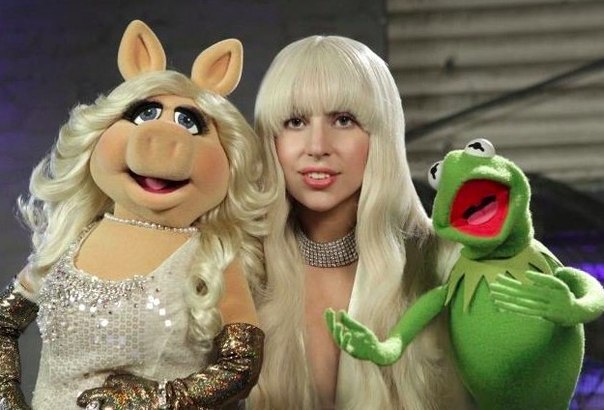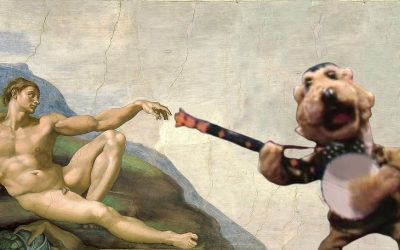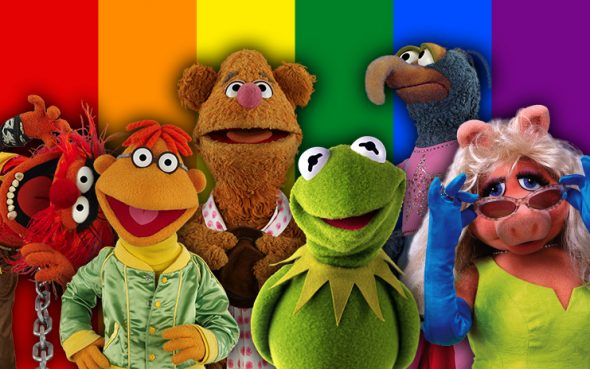
Stop me if you’ve heard this one, but I’ve got a question. Why are there so many songs about rainbows? It’s a question that’s plagued mankind and frogkind for years, but it’s even more relevant in June, as we enter Pride Month.
That’s right, June is Pride Month, where we honor those among us with diverse genders and sexualities, commonly referred to as those in the LGBTQ+ community or simply queer folks. Queer folks like me, and like many of the ToughPigs writing staff, and some of the folks behind Muppet stuff, like Richard Hunt and John Tartaglia and Alan Muraoka. In many ways, things have improved for us queer people in recent years. Obviously, gay marriage is now legal in the United States, and some states have nondiscrimination laws that make it easier for trans folks like myself to exist in the public sphere. But this June, I can’t help but feel like Pride Month is more important than in previous years. Around the country, lawmakers (mostly Republican lawmakers, let’s be real) are making it harder and harder to be openly queer. Laws are preventing safe and medically-necessary gender affirming services in both children and adults. Queer books are being pulled from libraries and now even possibly from independent booksellers. And queer adults are being fired from their jobs, accused of being “groomers.”
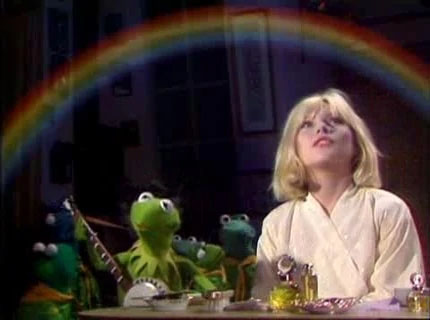
It’s a scary time for people like me. What’s possibly strangest is that a major sphere of this culture war has become conservatives lashing out at The Walt Disney Company. Maybe you’ve heard of them? They’re the corporation that currently owns the rights to the Flying Zucchini Brothers and the Talking Houses and Bean Bunny. Because of Disney’s negative reaction to Flordia’s “Don’t Say Gay” bill (a reaction only taken after protests by queer staffers and fans), conservatives are accusing Disney of being needlessly “woke” and “groomers” themselves. This is funny to me, because Disney honestly doesn’t even have that much queer representation in their media.
So back to the rainbows, and back to the Muppets, because this is a Muppet fansite. In part because of the Muppets’ aforementioned association with rainbows, Disney has been bringing Kermit and co. out as part of their yearly Pride work. You can see this post from the official Muppets twitter account from a while back, and this shirt that’s for sale at Walmart, and even this Gonzo tweet from around when the (very good) Gonzorella episode of Muppet Babies aired. And look, I’m glad to see that Beauregard the Janitor and all his friends have my back, although it’s kind of weird that none of these posts mention any specifics.
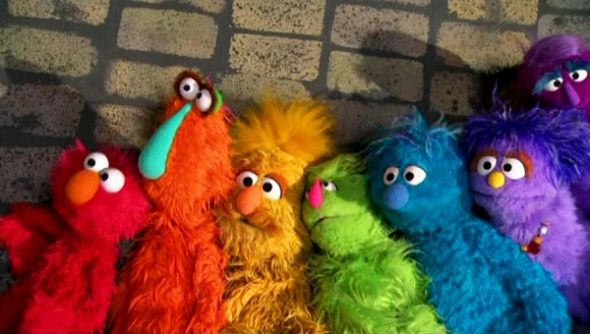
Which is also what this article is about. Because despite these rainbows, there are absolutely no canonically, explicitly queer Muppet, Sesame, or Fraggle characters. There are allusions, like when Statler said he’d want to meet Tarzan if he were a good dancer. There are metaphors, like Boober’s glowing baloobius. There are human characters, like two male parents in that one GLAAD-award-winning episode of Sesame Street. But there are no Muppets who are consistently and explicitly portrayed as queer.
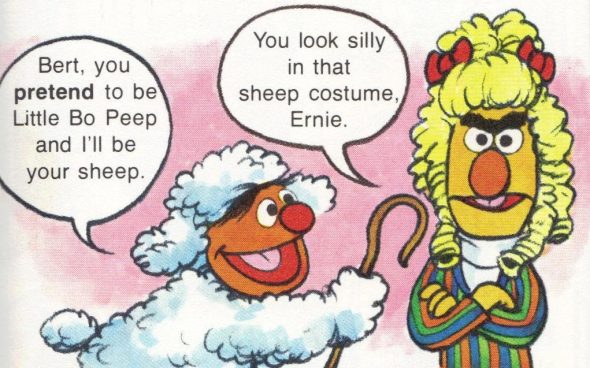
Sure, it’s nice to see Kermit with a rainbow, but genuine representation is actually extremely important to queer people, especially queer youth. Seeing yourself as a normal and loved part of a community is essential to kids, and helps them see that they’re not alone or criminal in a world that often hates and fears them.
It’s not a surprise that queer people like myself gravitate towards the Muppets. For one thing, they’re actors, and a lot of queer people connect with that. They’re also a found family, who support their friends as loved ones, and embrace the differences and quirks that make each of them unique. They’re not afraid to stand out, to be special, to go against the grain of society. They stand up for kindness and acceptance and they always beat the greedy bullies of their worlds.
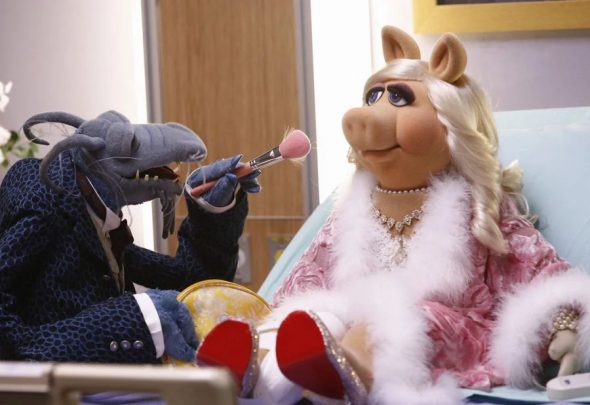
The Muppets are already so close to being what queer people need. The only thing they have to do is be more explicit about this. It matters! We’ve spoken about this before, but making metaphors literal is crucial for making them lasting and potent. So yes, I do think it’s important that the various Henson-adjacent projects make these ideas “canonical” (or whatever passes for canon with the Muppet gang). Whether it’s introducing a new character or reimagining an old character in a new way, if these companies really want to support queer folks, this is essential.
Throughout this month here on ToughPigs, we’re going to be spotlighting some of our writers from across the LGBTQ+ community. Each of us will be writing about characters or moments from the Muppet oeuvre that we connect to, that make us feel seen and valid. While I do still think it’s important that Disney, Sesame Workshop, and the Henson Company start making things more direct and apparent, we would be remiss in ignoring all the ways Muppet stuff makes us feel affirmed in our identities. We’re excited to talk about why we love the Muppets as they are, but we do want to acknowledge that there’s much more that needs to be done.
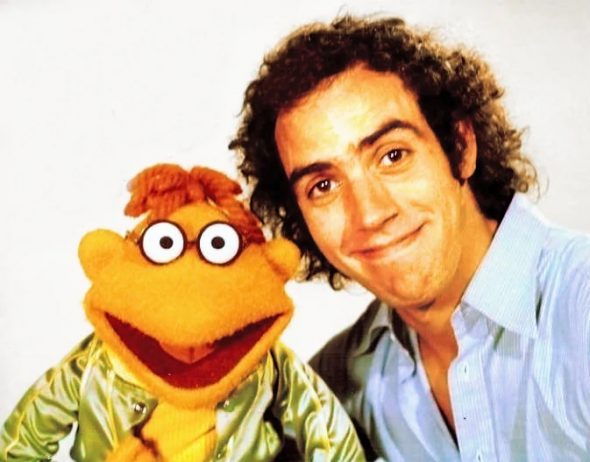
And remember, as we enter this important month during this tumultuous time, that LGBTQ+ rights of all kinds are human rights. We are not an abstract idea. We are real people in your neighborhood, people that you meet each day, that are living our best lives, helping others, learning and growing. Trying to stop people from being their true selves is everything the Muppets are opposed to. Happy Pride Month, everyone.
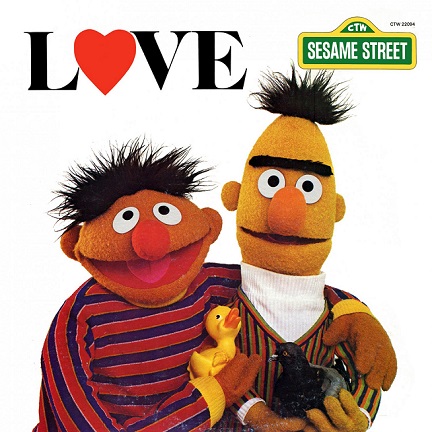
Click here to to celebrate the all the things rainbows can do on the ToughPigs forum!
by Becca Petunia

